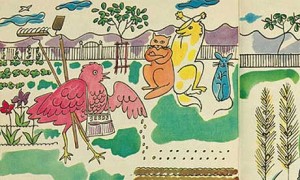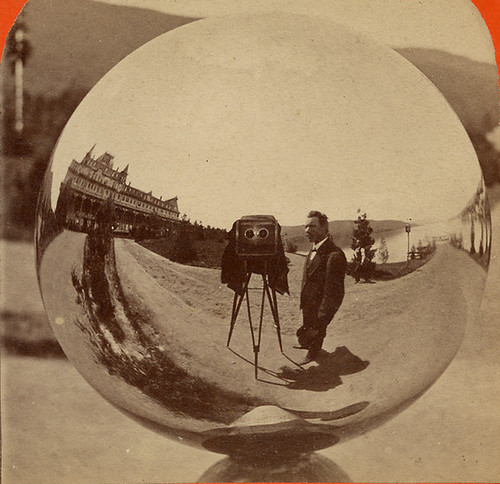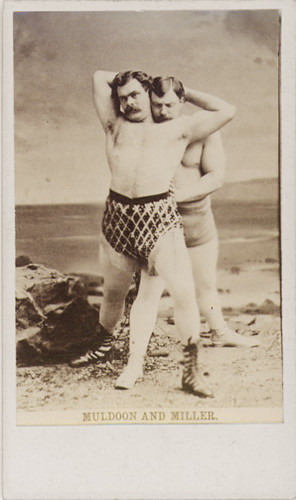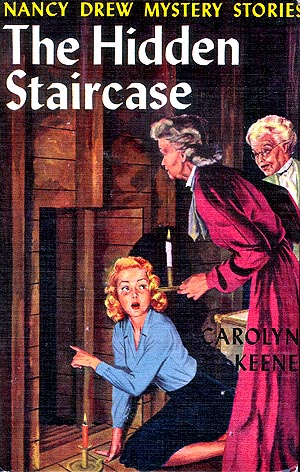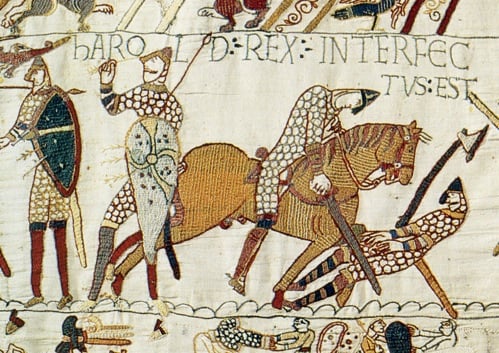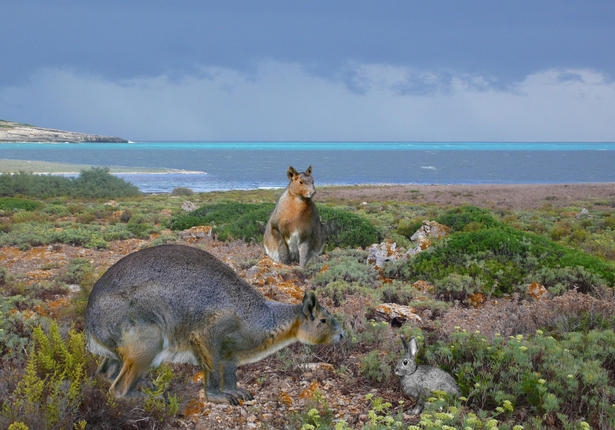They are a long way from the iconic pop art for which he is best known but a set of illustrations for a children’s book series by Andy Warhol are set to go up for auction in New York next month.
Warhol’s pictures illustrate the story of the little red hen, a folk tale about the value of team work, and show a perky little red hen happily sowing her grains of wheat, as a lazy cat, mouse and dog – who is reading the paper – look on. They were drawn by Warhol early in his career, between 1957 and 1959, for the Doubleday Book Club’s popular series Best in Children’s Books.
The Warhol illustrations will be auctioned on 9 December as part of Bloomsbury Auctions’s sale of 365 original illustrations and books, alongside a host of pictures and letters from 19th-century fairytale illustrator Arthur Rackham, a privately printed edition of Beatrix Potter’s The Tailor of Gloucester, rare Oz books by L Frank Baum and the artistic estate of award-winning African American children’s illustrator Tom Feelings.[source]
Cool, right? I love when artists chip in for children’s lit., even if it’s just for the cover. Anyways, here’s some info on the A. Warhol kid’s book opus.
Also, I’m jealous and want to break my watercolours out!
